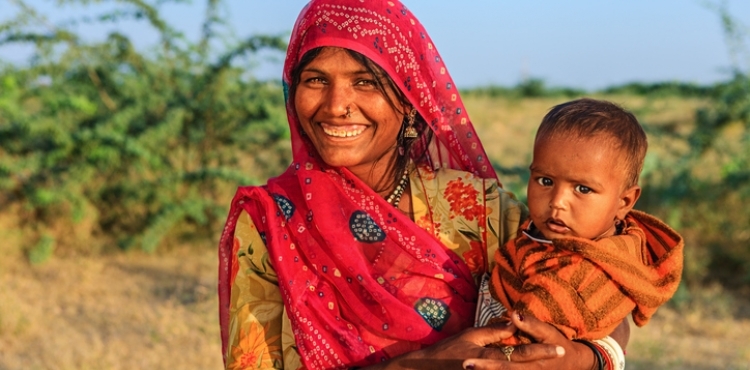Improved education of healthcare providers and follow-up of women with hypertensive disorders and diabetes during pregnancy are needed to limit future risk of cardiometabolic disease, finds new research from The George Institute for Global Health.
There is also an urgent need to raise awareness among rural women and healthcare workers at all levels of the postpartum period and long-term health of women with a history of hypertension and Gestational Diabetes Mellitus (GDM). Early identiï¬cation and counselling of women at high risk of cardiometabolic disorders through innovative community-level interventions may offer opportunities to address the escalating burden of these conditions.
These are the major findings of a qualitative study named “Women’s and healthcare providers’ perceptions of long-term complications associated with hypertension and diabetes in pregnancy” undertaken in Andhra Pradesh and Haryana by researchers from The George Institute for Global Health, India and UK (affiliated with the Nuffield Department of Women’s and Reproductive Health at the University of Oxford). This is the ï¬rst qualitative study exploring the views and knowledge of women and key healthcare providers around the long-term cardiometabolic consequences of high-risk conditions in pregnancy in rural India.
“Anaemia was identiï¬ed as the most common and important high-risk condition affecting pregnant women at both study sites,” says lead researcher Dr Shobana Nagraj, who conducted focus group discussions with pregnant women in the two States to understand their knowledge and perception of cardiovascular risk.
Their qualitative findings on the significance of anaemia amongst this population group are corroborated other studies which have highlight that over half of pregnant women in India are anaemic. The Government of India has recognised the importance of the early recognition and treatment of the condition throughout a woman’s life-course and have recently launched the ‘Anemia Mukt Bharat’ (Anaemia Free India) campaign. This includes comprehensive guidelines for the diagnosis and management of anaemia in pregnancy, including free medication (iron folate tablets and intravenous iron sucrose), and resources to improve diet and adherence to medication.
“We also observed a mismatch between behaviour change interventions provided by healthcare workers around anaemia prevention and the constraints of pregnant women within their socio-cultural environments,” said Dr Nagraj, adding that the ï¬nding highlights the importance of adopting wider societal and family-based awareness programmes for anaemia in pregnancy, particularly targeting key household members, in addition to individually focused opportunistic counselling.
GDM has been the key priority area for funding and research within the Indian context. Most studies of GDM in India have focused on the growing semi-urban and urban populations, where there are signiï¬cant differences to rural settings, in terms of physical characteristics (body mass index), the nature of daily labour, and socio-economic status.
The Government of India has recently launched new guidelines for GDM testing in rural settings, recommending community-based gold standard oral glucose tolerance test (OGTT). “We are excited by the opportunity to work in India and the study will form the basis of launching a new toolkit for ASHA workers to detect cardio-vascular risk among pregnant women,” said Dr Jane Hirst of the Nuffield Department of Women and Reproductive Health.
The barriers to the widespread implementation of GDM guidelines and successful integration into the existing healthcare system in rural areas are signiï¬cant. Strengthening of health systems, through supporting rural PHCs, provision of adequate training, education, equipment, supply chains of medications and diagnostics, is required before high-quality implementation of these guidelines is possible. Postpartum management and long-term follow up of high-risk pregnant women were found to be lacking.
As socio-cultural practices around childbirth in rural India often require the women to stay at home for the ï¬rst six weeks postpartum, Community health workers (CHWs) are ideally placed to deliver community-based interventions to engage and follow up women in their homes, and ensure continuity of care. “Home-based BP monitoring by CHWs has been shown to be feasible and effective in several studies, both within and outside the context of pregnancy. With the correct support and supervision, task-sharing postpartum care with CHWs may help address the signiï¬cant workforce shortages affecting specialist obstetricians in rural India,” says Dr D Praveen, Head Primary Health Care, The George Institute.

 Improved education of healthcare providers and follow-up of women with hypertensive disorders and diabetes during pregnancy are needed to limit future risk of cardio metabolic disease, finds new research from The George Institute for Global Health.
Improved education of healthcare providers and follow-up of women with hypertensive disorders and diabetes during pregnancy are needed to limit future risk of cardio metabolic disease, finds new research from The George Institute for Global Health.





















.jpg)










